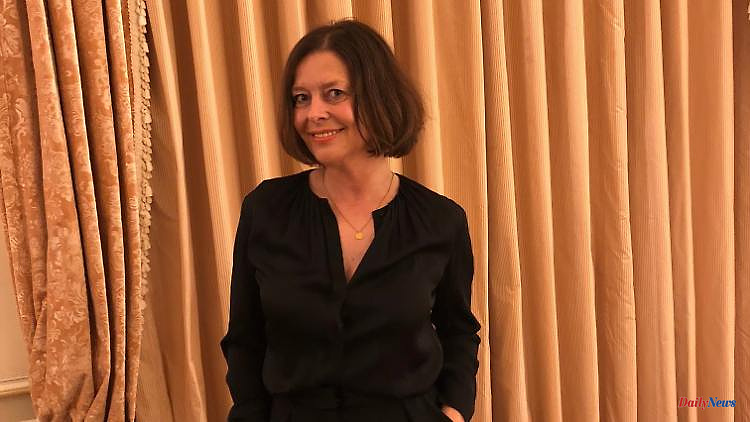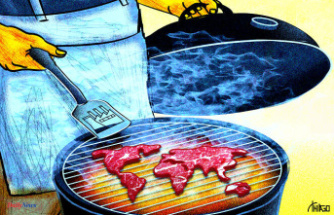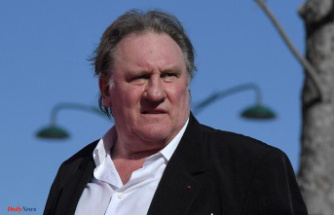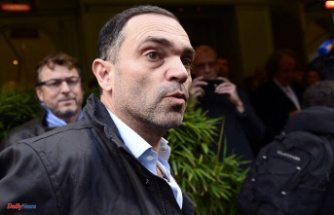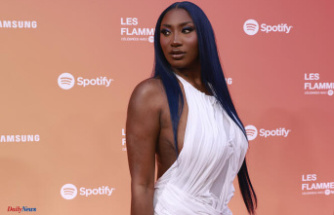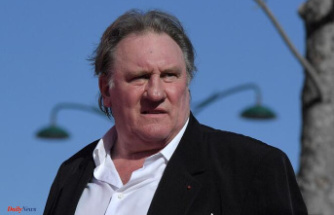Four million people in Germany suffer from such rare diseases that doctors are powerless to diagnose them. For them there is "ACHSE e.V.", where Saskia de Vries tirelessly collects money for research and support for those affected.
Saskia de Vries hasn't always raised money for a good cause. The 51-year-old had studied Spanish, French and philosophy in the classic way and, after completing her studies in Berlin, ended up as an intern at the Deutsches Theater Berlin, trained as a press officer and, also because of her love of people, "sort of ended up in NGOs". She has always had a great passion for art, for literature, for encounters and last but not least for people. She was then hired as a fundraiser for "Reporters Without Borders" for the first time. And then finally came to ACHSE e.V., that was in 2007. The abbreviation stands for "Alliance of Chronic Rare Diseases" and is the umbrella organization of and for people with rare diseases, which gives those affected a voice in politics, medicine and society.
Horst Köhler was Federal President at the time de Vries was hired. He and his wife had already founded the "Eva Luise and Horst Köhler Foundation for Rare Diseases", which is responsible for research into these rare diseases. "Mrs. Köhler was the patron of ACHSE, and although I had a daughter who was only seven months old when I applied, I was accepted," laughs the fun-loving and down-to-earth "money collector" in an interview with ntv.de. That was 15 years ago. Today, de Vries is the director of philanthropy and major donation fundraising there.
"Good fundraising only works with good public relations and an excellent network. With Ms. Köhler as our patron, we have managed to attract a lot of attention to our topics and the so-called 'orphan children of medicine' have become more of a focus of society." Saskia de Vries founded a circle of friends, which, thanks to its colorfulness and diversity of people, serves as a multiplier in society. "I was able to live out my interest in art and people at my first auction in the Hotel Adlon in 2007," says de Vries. But "just art" was no longer enough for her: "I developed the concept of 'rare opportunities'."
From then on, Saskia de Vries wanted above all to connect people with one another. She is supported in the acquisition letters and in writing the texts for the auction catalog by Roland Strehlke, "an excellent copywriter", according to de Vries. "His hit rate for getting people enthusiastic about our cause is 75 percent. If he writes to someone, hardly anyone can refuse him anything." It is important to have the right feeling, because the events that Saskia de Vries organizes for ACHSE often involve celebrities. Or expensive works of art. Evenings with excellent musicians, actors or journalists are auctioned, works of art made available by artists or galleries. The invited guests bid on these offers - the more expensive, the better - and the ACHSE uses this money for its commitment to people with rare diseases.
"Everyone has a benefit: the people who bid on the art or an event with an artist, the artists because they have done something good and can also show themselves, and those affected because we have drawn attention to the fact that among the Of the 30,000 diseases that exist, around 8,000 are rare diseases."
Back to the subject of auctions: Artists are often rather shy people - aren't they afraid that they could be sold "below their value"? Saskia de Vries laughs heartily: "No, that rarely happened, and as long as I hold these auctions, I make sure that everyone feels comfortable. The minimum bid is based on the market value and we never go below our minimum bids." Organizing auctions is a highly sensitive, almost artistic act, de Vries knows: from the first email to the location where the event takes place. Saskia de Vries has been accompanied for years by experienced auctioneers, above all by Christiane Gräfin zu Rantzau from Christie's auction house, who runs the auctions on a voluntary basis.
The circle of friends and also the circle of those who want to take part in one way or another is constantly growing. This is thanks to Saskias de Vries' unshakeable networks and her work, but also to her personality, which radiates so much calm and security. "Until I have a catalog together, which then contains around 20 "objects" at an auction, I speak to a lot of people." The ACHSE itself, but also the reputation of the Köhler couple and their research foundation, are certainly factors that make public relations work easier for "the rare ones", but also de Vries' approach: "I'm interested in the poetry of encounters. I'm interested in how people make their Biography, in this short lifetime that we have, design." De Vries bites his teeth with some of the guests he wants, who just don't want to or can't, but that's exactly what arouses their curiosity to one day inspire them for the cause.
But how do I proceed if I am affected by a rare disease: "You contact our advisors for those affected and their relatives. By e-mail, telephone or letter. We usually see whether there is a patient organization for this specific disease , with which we network those affected. The self-help organizations are the places of expertise. But we also advise on many other topics. We are the voice of four million affected people in Germany, many of whom are children." Research in the field of rare diseases sometimes finds ways and means to alleviate other diseases as a "by-product". Maybe one or the other remembers "Dr. House"? "The rare also has something very fascinating, it's just the varieties of nature," says Saskia de Vries. "We've become very well known in the meantime, which is because we're really the only point of contact for many."
The current auction is taking place on Sylt - not the worst place to get money out of people's pockets elegantly and with high value. There are many things up for auction at the Hotel Benen-Diken-Hof that money can perhaps buy, but not always: yoga lessons on Ischia or a work of art by Jochen Cerny, appropriately with a typical Sylt motif - might fall into the first category . But baking with Cynthia Barcomi or going to the journalists' club on the 19th floor of the Springer publishing house - you don't get there that quickly as a non-journalist or guest of the Springer house. However, if Ulf Poschardt, who is to be auctioned, takes you with him, you can be sure that you will go up and down the elevator with him without having to give up your own career.
Or how about Max Raabe in the living room? Together with his gifted pianist Christoph Israel, he would also perform "No pig calls me" in front of your wall unit. There's a lot of art that you can hang on your wall and have forever - but an evening with a philosopher who explains the world or at least tries to put it in perspective? That's also possible on August 20: Wilhelm Schmid, bestselling author ("Serenity - What we gain when we get older") may manage to calm us down a bit when we head towards the uncertain autumn. A place at Fashion Week with Dorothee Schumacher or a four-course menu cooked and served by moderator Jörg Thadeusz – Saskia de Vries' imagination knows no bounds.
The auction on Sylt is intended to give hope and confidence to around four million people in Germany with a rare disease. "It's about strengthening research and providing better care for those affected, shortening the path to diagnosis," says de Vries. And it's about a chance to understand the diseases, to live with them better or even to heal them. Because the diseases pose great challenges for those affected and their relatives: Long diagnostic paths, little medication, often major restrictions in everyday life. "Many families can't handle it at all, they urgently need our solidarity and help," emphasizes de Vries. And if you can't bid, you can donate.
In November she will hold an auction at the Wallraff-Richartz-Museum during Art Cologne for PRO RETINA, an association for visually impaired people. Its patron is gallery owner Johann König, and some works of art are auctioned off that blind people can also see.

